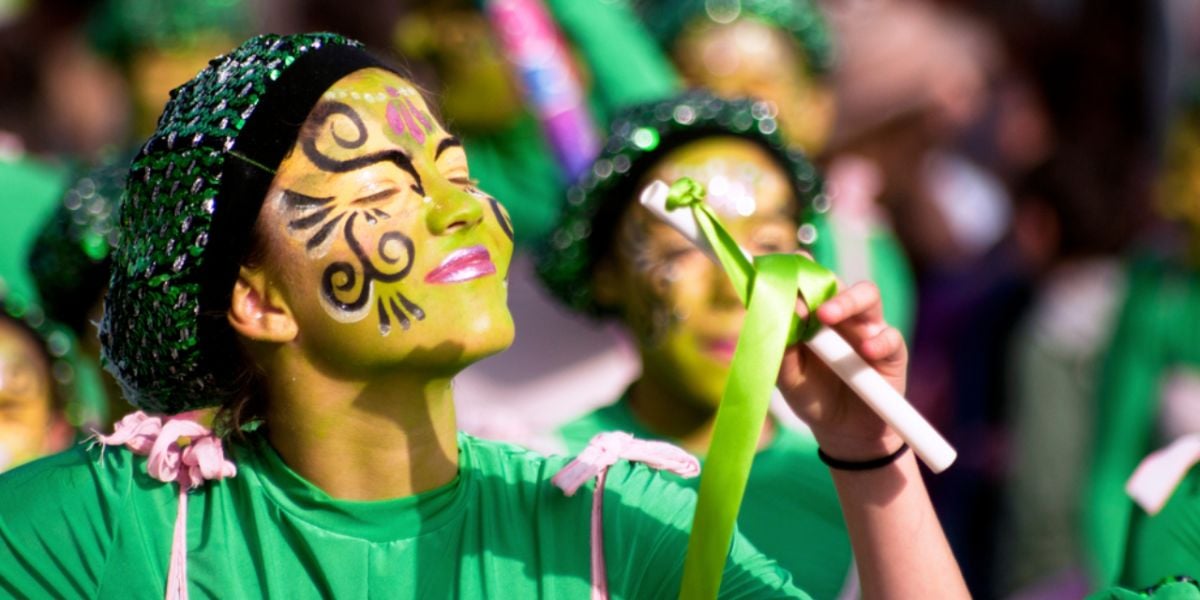
If you consider the fact that the island has been inhabited since the Neolithic era, you understand that Cypriot culture cannot easily be defined in one article. Cyprus is a cornucopia of archaeological sites, and the different civilisations that have passed through the island all left their mark. However, the majority of customs and traditions come from Greece but with a Cypriot spin. Many of the local traditions are centred around food, drinks and religious practices.
The Cypriot 'welcome'
As you will quickly notice upon your arrival, Cypriots are very welcoming towards foreigners. The tradition of hospitality does have Greek roots, with Xenios Dias, the god Zeus being a patron god of strangers. However, whereas in modern Greece this tradition has mostly faded unless you are in rural areas, in Cyprus it is still quite prominent. You will hear the words 'Kalosorisate' (which means, 'welcome') and 'Kopiaste' (which translates to something like 'come join us') very often, whenever about to enter a taverna, a shop, or a friend's home
Cypriots are generally friendly, and they will be glad to start a conversation with you on the street and help you out if you need directions. The fact that most of them speak several languages makes intercultural communication that much easier.
A penchant for the supernatural
Cypriot folk tradition is very rich with tales of goblin-like creatures, objects that protect you from harm and other practices that we would today consider superstitious. However if you look at them from a cultural perspective, these practices are contributing to the country's unique character.
Kallikantzaroi, the goblins that come around every Christmas, are a beloved Cypriot folk trope which can be found in numerous songs, literature, theatre plays and puppet theatre. Kallikantzaroi are supposed to reside in the centre of the earth and come out to cause mischief in people's homes during the holidays. One should keep the family hearth burning throughout the twelve days of Christmas, to keep Kalikantzarous away, or spring holy water around the house for protection. Although of course, you won't find city folk putting too much stock in these tales, if you visit the more rural areas, you are likely to encounter old ladies willing to warn you against Kallikantzaroi.
Objects imbued with mystical energy also have a prominent place in Cypriot tradition. Among those, the komboloi (worry beads). Komboloi nowadays is mostly used as a fidget spinner (way before fidget spinners were invented), by men in traditional kafeneia (coffee shops) while they chat or play backgammon. But its original purpose was to relax the mind, bring about a meditative status and even be used in prayers; to this day, many monks and nuns use worry beads.
Another fascinating object is the 'evil eye' charm, usually a blue and white marble bead shaped like an eye. This charm is thought to protect you from people who look at you or think of you with ill intention; it is supposed to be worn as jewellery.
Social and religious celebrations
In Cyprus, social and religious celebrations are intertwined. For instance, one's name day is celebrated almost as much as one's birthday ' sometimes even more. This is because most people are named after Christian saints, so the day they celebrate their name day, it's also the name day celebration for that particular saint. In many villages, the name days of the patron saints are a big deal, celebrated with music, fireworks and a feast.
Cyprus being an Orthodox Christian county, Easter is the most important religious holiday (perhaps even more so than Christmas). It lasts about five days and, as it marks the end of Lent fasting, Easter is associated with grilling lamb meat and consuming copious amounts of food and drink. Hard-boiled eggs dyed red are used as a game, where people tap their eggs while wishing Happy Easter to one another (cracking your opponent's egg is considered good luck). Delicious food will be available during that time, but make sure to try flaounes, the Cypriot traditional cheese pastries.
We do our best to provide accurate and up to date information. However, if you have noticed any inaccuracies in this article, please let us know in the comments section below.








